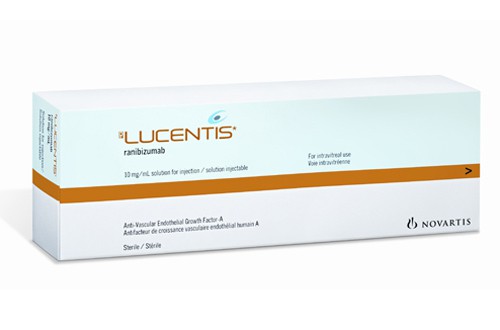
Novartis’ legal bid to block an NHS policy giving patients the choice of receiving Avastin ‘off-label’ for an eye condition instead of its Lucentis is “absolutely fundamentally right”, according the chief executive of the Association of the British Pharmaceutical Industry (ABPI).
Speaking at the industry body’s annual conference in London yesterday, Stephen Whitehead also drew attention to Lucentis’ NICE recommendation the condition, wet aged-related macular degeneration (AMD).
“NICE themselves have said to the industry: if we recommend, and it’s not being adopted, why don’t you take legal routes, use the media, go public, put the pressure on,” he said.
“That’s what NICE has said to us to do, and I think it’s completely appropriate that attention was drawn to that decision.”
Novartis is seeking a judicial review of the decision by Southampton, Hampshire, Isle of Wight and Portsmouth Primary Care Trust (SHIP) Cluster Board to give patients with wet AMD a choice between Lucentis and Avastin.
Both drugs were originally developed by Roche’s Genentech unit, but while Lucentis (ranibizumab) is licensed and recommended by NICE to treat the eye condition, Avastin (bevacizumab) is not.
Announcing its new policy last September, the SHIP Cluster Board said the “simple switch of drug treatment would achieve the same clinical outcomes for patients”.
But importantly for both the SHIP Cluster Board and Novartis, which markets Lucentis in Europe, the small amounts of Avastin used to treat wet AMD make it far cheaper than Lucentis, which accounts for more than one per cent of the NSH drugs bill.
The SHIP Cluster Board says local savings from switching from Lucentis to Avastin would amount to £5m a year “which would contribute to positive health benefits across the area”.
But Novartis says there is “emerging evidence of potential safety concerns with the use of unlicensed bevacizumab when used to treat eye conditions”.
“Novartis is concerned that the wet AMD policy is asking patients and clinicians to save the National Health Service (NHS) money by using an unlicensed medicine to treat wet AMD,” the pharma company said in statement.
It added: “Novartis is worried that the principle of patient safety is being undermined by the current SHIP policy. It is unacceptable to put the safety of patients at risk through the widespread use of an unlicensed treatment when a licensed medicine is available.”
This point was echoed by the ABPI’s Whitehead, who said off-label prescribing is “fundamentally dangerous and undermines the whole regulatory process”.
“Why go through clinical trials when healthcare professionals, or more importantly the healthcare funders who are driving all of this, use medicines that are off-label and off-licence.”
Asked what the implication would be if Novartis lose, Whitehead said he didn’t think that would happen.




